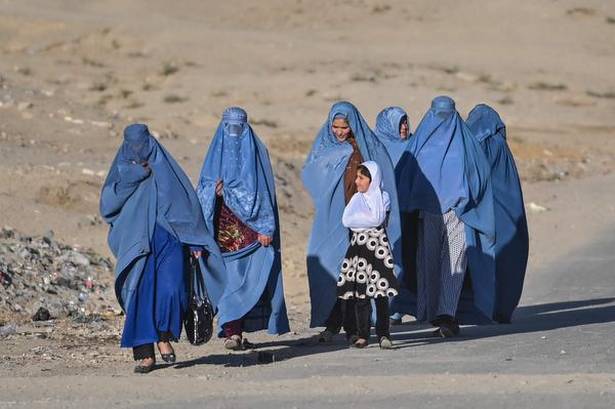
Taliban bans forced marriage of women in Afghanistan
The Taliban has issued a decree barring forced marriage in Afghanistan, saying women shouldn’t be considered “ property” and must assent to marriage, but questions remain about whether the group that returned to power inmid-August would extend women’s rights around work and education.
The decree was blazoned on Friday by the reclusive Taliban chief, Hibatullah Akhunzada – who’s believed to be in the southern megacity of Kandahar. “ Both ( women and men) should be equal,” said the decree, adding that “ no bone can force women to marry by compulsion or pressure”.
The decree didn’t mention a minimal age for marriage, which preliminarily was set at 16 times old.
The group also said a widow will now be allowed tore-marry 17 weeks after her hubby’s death, choosing her new hubby freely.
Longstanding ethnical traditions have held it customary for a widow to marry one of her hubby’s sisters or cousins in the event of his death.
The Taliban leadership says it has ordered Afghan courts to treat women fairly, especially widows seeking heritage as coming of kin. The group, which came to power in August, also said it had asked government ministers to spread mindfulness about women’s rights across the population.
The development was hailed as a significant step forward by two leading Afghan women, but questions remained about whether the group would extend women’s rights around work and education.
“ This is big, this is huge … if it’s done as it’s supposed to be, this is the first time they’ve come up with a decree like this,” said Mahbouba Seraj, administrative director of the Afghan Women’s Chops Development Center speaking from Kabul on a Reuters Next conference panel on Friday.
The transnational community, which has firmed billions of bones in finances for Afghanistan, has made women’s and mortal rights a crucial element of any unborn engagement with Afghanistan.
Seraj said that indeed before the Taliban took over the country on August 15, Afghan politicians had plodded to form such a clear policy on women’s rights around marriage.
“ Now what we’ve to do as the women of this country is we should make sure this actually takes place and gets enforced,” said Seraj.
Roya Rahmani, the former minister for Afghanistan to the United States, echoed her sanguinity and added that it was likely incompletely an attempt to smooth over transnational fears regarding the group’s track record on women’s rights as the Taliban administration seeks to get backing released.
“ An amazing thing if it does get enforced,” Rahmani told the Reuters Next panel, adding details similar as who would insure that girls’ concurrence wasn’t constrained by family members would be crucial.
“ It’s a veritably smart move on the part of Taliban at this point because one of the ( pieces of) news that’s attracting the West’s attention is the fact little girls are being vended as property to others in order to feed the rest of the family,” she said.
During its former rule from 1996 to 2001, the Taliban banned women from leaving the house without a manly relative and full face and head covering and girls from entering education, constrained men to grow beards and barred the playing of music.
The Taliban says they’ve changed but numerous women, lawyers and officers remain sceptical.
The group promised freedom of expression, women’s rights and remittal to officers who worked under the former government of President Ashraf Ghani. But intelligencers have faced restrictions and reports have surfaced of Taliban fighters involved in vengeance killings of former officers. A large number of secondary seminaries for girls are still not functional, though Taliban has said it’s working to open them.
The US has firmed nearly$ 10bn in Afghan central bank reserves and transnational fiscal institutions have suspended development backing for the country, plunging the heavily aid-dependent frugality into extremity and leaving economists and aid groups advising of a philanthropic catastrophe.

